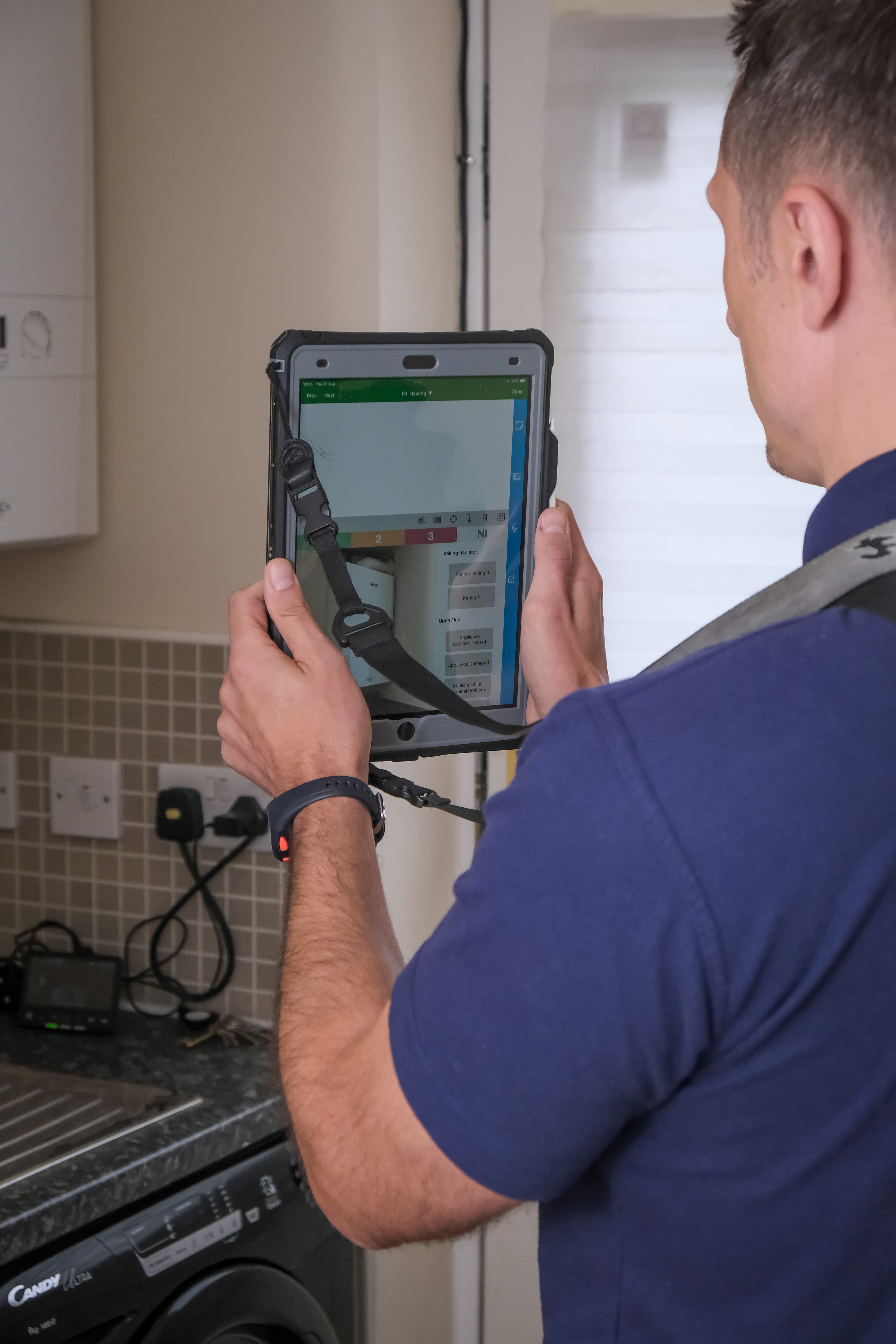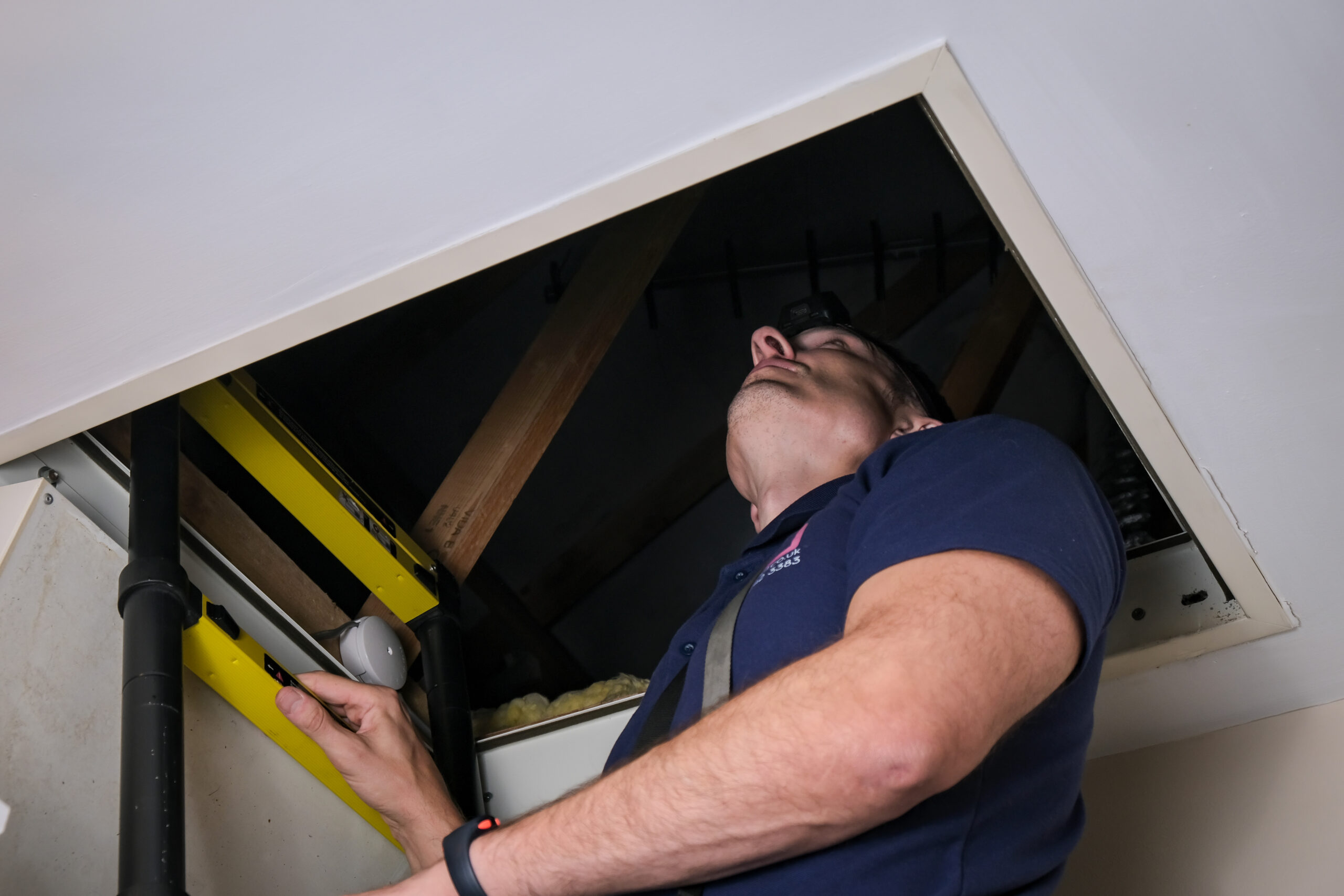Be Confident and Reassured
Get a survey for your new home, and relax
You can get a range of home surveys to suit your needs. Our surveys are conducted by RICS-qualified surveyors who provide a detailed report on the condition of the property, including any defects or potential problems. With Survey Hut, you can be confident that you have all the information you need to make an informed decision about your purchase.
Level 2
Level 2 PLUS
EXTRAS
Our Surveys in Detail
What is a Level 2 Home Survey?
A level 2 home survey, also known as a HomeBuyer report, is a professional property assessment designed to help you understand the condition of a home before committing to a purchase. Conducted by our RICS-qualified surveyors, it provides a detailed but non-intrusive inspection of the property, highlighting any visible defects, maintenance concerns, and potential risks.
This type of survey is ideal for homes that appear to be in reasonable condition and is commonly used for modern or traditionally constructed properties. Unlike a basic Condition Report, which provides only a surface-level overview, the level 2 home survey offers a more detailed assessment while remaining less invasive than a level 3 home survey, which is designed for older properties or those requiring extensive repairs.
You’ll want a level 2 home survey because it provides clear insights into the property’s condition, helping you identify potential issues before finalising your purchase. By highlighting areas that may require maintenance or repair, the report allows you to make informed decisions, negotiate better terms, and avoid unexpected expenses down the line.

Why You Need a Level 2 Home Survey Before Buying a Property
Purchasing a home is one of the most significant financial commitments you’ll make. While a property may appear well-maintained during viewings, defects can lead to expensive repairs if left undetected. A level 2 home survey provides an expert assessment, ensuring you have a clear understanding of what you’re buying.
Key Reasons to Get a Level 2 Survey:
- Peace of Mind – Find out as much as you can about a property before buying it. Don't have sleepless nights worrying about potential issues.
- Identify Common Property Issues – Many defects, such as damp, roofing problems, and structural issues, may not be immediately visible but could lead to costly repairs if left unaddressed.
- Avoid Expensive Repairs – Spotting issues early means you can factor in repair costs before purchase, rather than being hit with unexpected expenses after moving in.
- Strengthen Your Negotiation Position – If issues are found, you can use the findings to renegotiate the purchase price, request repairs, or even reconsider your decision.
What Does a Level 2 Home Survey Cover?
A level 2 survey provides an in-depth inspection of the property’s condition, assessing its overall maintenance requirements and identifying potential concerns. The survey offers a structured review of both internal and external elements, covering key areas that impact the longevity and safety of the home.
While a level 2 survey does not include invasive investigations, it provides a detailed assessment of visible issues, giving you valuable insights into the home’s condition before purchase.
General Property Condition
- Provides an overview of the visible condition of the building, highlighting any obvious defects or signs of deterioration.
- Assesses walls, ceilings, and floors for cracks, warping, or damage that may indicate deeper maintenance issues.
- Identifies concerns with external brickwork, cladding, and finishes, which can affect the property’s durability.
Roofing & Drainage
- Examines the chimney, roof coverings, tiles, and guttering for defects that could cause leaks or moisture penetration.
- Get a Level 2 PLUS for a drone to look at the upper parts of the property in more detail.
- Looks inside the roof space for damp and other defects, which may indicate poor maintenance or potential weather-related damage.
- Assesses the effectiveness of gutters and downpipes, ensuring proper water drainage to prevent damp problems.
Damp & Moisture Issues
- Identifies damp, which can lead to timber decay and deterioration of structural materials.
- A thermal imaging camera will be used to further investigate damp in our Level 2 PLUS survey.
- Highlights penetrating damp caused by leaks, roof issues, or faulty windows and doors.
- Checks for condensation and mould risks, ensuring proper airflow and ventilation throughout the home.
Windows, Doors & External Features
- Assesses the condition of doors, windows, and frames, checking for damaged seals, misted glazing, or defective locks.
- Assesses external timber and woodwork for signs of rot or weather damage.
- Checks for defects in external finishes, such as rendering or paintwork, that may indicate ongoing maintenance concerns.
What's included in a Level 2 PLUS Home Survey?
A Level 2 PLUS has all the great elements of a standard survey, plus it includes a drone survey to inspect upper parts of the property that are often hidden, to give you an accurate and detailed report.
A thermal imaging camera investigation is also done so no stones are left unturned in our search for damp and condensation in your new home.
How a Level 2 Home Survey Can Give Peace of Mind
A professional home survey isn’t just about checking for issues—it gives peace of mind and provides long-term financial benefits that protect your investment.
Avoiding Expensive Repairs
- Spot potential damp issues or roofing concerns before they become costly problems.
- Factor in repair costs before purchase instead of dealing with unexpected expenses later.
Strengthening Your Negotiation Position
- Use survey findings to negotiate a lower price or ask the seller to fix major issues.
- Reduce the risk of overpaying for a property that requires additional work.
Planning Future Maintenance
- Understanding upcoming repair costs allows you to budget effectively and avoid surprise expenses.
- Helps you plan for gradual improvements rather than dealing with urgent, costly repairs.

Booking a Level 2 Home Survey with Survey Hut
At Survey Hut, you get a straightforward and professional service to assess a property’s condition.
How the Process Works:
- Book Your Survey – Get an instant quote, ask any questions you have and instruct us to do the survey.
- Expert Inspection – We’ll book the inspection and one of our RICS-qualified surveyors will conduct a thorough, non-invasive survey.
- Receive a Detailed Report – You receive an easy-to-understand, comprehensive report within 3 working days.
- Discuss Your Findings – You’ll have the opportunity to book a call with your surveyor to answer any questions and provide additional guidance.

Property Survey FAQs
Accordion Content
The perfect time to instruct a surveyor is once you have the property under offer and have secured a mortgage, if you need one.
It is often done at the same time as your conveyancer.
Getting a survey done early can give you time to discuss the findings with the seller, negotiate a reduction in the price or pull out of the purchase before too much time is wasted.
However, a home survey can be done anytime before you exchange contracts on a property, so its never too late.
Yes. Survey Hut only use our own highly trained team to deliver your survey. Check out About Us to learn more.
We do this because we give very detailed reports, with lots of photos that benefit from the use of high tech equipment. We are contactable and available to chat through your report. We couldn’t trust this to other surveyors.
Some online comparable sites and national surveying firms take your instruction and sub-contract it to another surveyor. This means you have no control over who is doing your survey and you might struggle to speak to them.
Come direct to us.
RICS home surveys are a cost effective way to check your new home for defects.
We’ll be honest, many people buy a house without a survey.
However, from around £450 you get an experienced surveyor check for damp by taking over 100 readings with a damp meter, look for structural issues, get into the loft (subject to access), visually look at the services and inspect all accessible elements of the property. The surveyor puts together a report with lots of photos and goes through it with you to answer any questions and compare it to other similar properties. If there are issues that need further investigation they will help you find a trusted specialist.
We think a survey is a great cost effective way to check a new home and give peace of mind.
Technically a home survey isn’t a structural survey.
However, our surveyors do look for signs of structural movement at a property, including to the chimneys, roofs, walls, floors and doors which might be due to subsidence, faults with the construction and defects.
A structural report is produced by a structural engineer who will look at a specific structural problem to give a specification of works and cost of repair. It often follows a home survey or valuation where a specific issue is found. A structural report doesn’t look at the whole property.
To confirm if a wall is load bearing you often need an assessment of the property by a structural engineer to check the thickness of walls, orientation of floor and ceiling joists and footings to the walls. Unfortunately it is outside the scope of a home survey.
It’s safe to assume that structural strengthening will be required to remove all or part of a wall.
It takes a lot of professional help to build an extension. You often need input from a planning consultant, architect, structural engineer, building control officer, drainage expert, electrician, plumber and builder.
The above elements are each a specialised area.
A RICS Home Survey does not include provisions for advising on future extensions.
To help we can recommend some great specialists to guide you through the process. Just ask.
Some surveyors have a reputation for producing vague reports to try and avoid missing anything. However, these type of reports aren’t useful to a home buyer as they can’t implement the repairs or quantify the problems.
A home survey is a visual inspection of a property so a surveyor can only look at elements they can see.
A surveyor has to ensure they’re safe so can’t put themselves in dangerous situations. They also aren’t qualified to test and check the electric, gas and heating installations.
So you will get some reasonable caveats in a survey.
If you use Survey Hut you’ll get a surveyor that tries to get into all safe accessible areas. You can have a drone to see high inaccessible areas. You’ll get a report that specifies where problems are, lots of photos and advice about what could happen if defects aren’t repaired. To be helpful you get the background to a lot of the problems we find.
Your survey will include photographs, the location and visible issues with the utilities. However, surveyors are not qualified to test the condition of the utilities. This needs to be done by a qualified electrician, gas engineer or plumber.
You can have the electric, gas, oil and heating installations tested and checked by a qualified engineers by adding them as EXTRAS. The findings and certificates are included in your report.
Yes photos are included in your Level 2 and 3 Reports.
More annotated photos are included in a Level 3 Report as its more detailed.
It’s difficult to provide accurate costs due to the changes in prices and as further investigations might be needed following the survey.
We therefore don’t include costs of repairs in our reports.
A Level 2 survey focuses on the major potential defects in a property – the condition of the inside and outside of the roof, if there are signs of structural issues and if there are elevated damp readings.
It also describes the condition of the chimneys, walls, rain water goods, windows, doors, internal elements and grounds including any garage and/or outhouse.
It is regulated by the RICS and is a non intrusive survey of your new home with a traffic light grading system to indicate any defects and the urgency of any required maintenance or repair.
Add a valuation to the survey as an EXTRA.
It is suitable for traditionally constructed properties with limited extensions built in the last 100 years.
A Level 2 survey tests for elevated damp readings using a Protimeter.
It highlights any significant repairs or replacements the property needs.
Recommendations for further investigation if the surveyor can’t reach a reasonable conclusion on the current condition.
A desktop investigation of the flood risk, if it is near a current or former coal mine or if it might be affected by Radon gas.
Recommendations for your legal advisor to undertake further investigations into potential legal issues to do with extensions, building regulations, planning permissions, boundaries, rights of way and leasehold terms.
A review of the Energy Performance Certificate.
A drone survey and thermal camera investigation can be undertaken in our Level 2 PLUS survey.
Also known as a building survey. Includes everything in a Level 2 survey with greater detail on construction materials and methods, plus detailed advice on cause & repair of defects.
It is suitable for older, larger, non traditionally built homes with lots of extensions or conversions or those wanting more detail in their survey.
Add a valuation to the survey as an EXTRA.
A Level 3 survey is a more in depth and detailed report into the condition of your new home.
It will identify the building materials used in the construction of the property and comment on the likely maintenance and repair required in the future.
Concealed areas normally opened or used by the occupiers will be inspected if its safe to do so, such as drains and underfloor areas.
Read more about the differences here.
A building survey is suitable for larger, more complex, non traditionally constructed properties with more than one extension built over approximately 100 years.
When it comes to buying or selling a property, home valuation is a crucial aspect that needs to be taken into consideration. A home survey can have a significant impact on the home valuation, as it provides an in-depth analysis of the property’s condition and any potential issues that may affect its value.
At Survey Hut, we offer a range of home surveys that can help determine the true value of a property. Our surveyors provide detailed information on the property’s structure, condition, and any defects that may be present. This information can then be used to make informed decisions about the property’s value.
One of the main ways that surveys impact home valuation is by identifying any defects or issues with the property. If a survey reveals that there are significant defects or issues that need to be addressed, this can have a negative impact on the property’s value. On the other hand, if a survey reveals that the property is in good condition and well-maintained, this can have a positive impact on the property’s value.
Another way that surveys impact home valuation is by providing a more accurate picture of the property’s condition. Without a survey, it can be difficult to determine the true value of a property, as there may be hidden defects or issues that are not immediately apparent. By providing a detailed analysis of the property’s condition, surveys can help ensure that the property is accurately valued.
Home surveys can have a significant impact on home valuation. By providing detailed information on the property’s condition and any potential issues, surveys can help ensure that the property is accurately valued. At Survey Hut, we offer a range of home surveys that can help provide a more accurate picture of a property’s value, ensuring that our clients can make informed decisions about buying or selling a property.
At Survey Hut, we understand that time is valuable, and our aim is to provide our clients with a comprehensive home survey as efficiently as possible. The duration of a home survey varies depending on the size and complexity of the property, as well as the type of survey being conducted.
For a typical HomeBuyers survey, we allocate between 2-4 hours for the inspection itself, and additional time for the report writing process. This time frame allows us to thoroughly inspect the property and identify any potential issues that may affect the value or safety of the property.
For more complex properties or buildings with unique features, such as listed buildings, the survey may take longer. In such cases, we will work with the client to provide an estimated timeframe for completion and ensure that they are kept informed throughout the process.
It is important to note that the duration of a home survey is not the only factor to consider when choosing a surveyor. At Survey Hut, we pride ourselves on providing high-quality reports that are easy to understand and provide valuable insights into the property. Our experienced surveyors use the latest technology and techniques to ensure that every aspect of the property is thoroughly inspected, and any potential issues are identified.
We believe that the duration of a home survey should not be rushed, and our aim is to provide our clients with a comprehensive report that they can rely on. If you have any questions about the duration of a home survey or would like to book a survey with us, please don’t hesitate to get in touch.
If you’d like us to do a survey either drop us an email at hello@surveyhut.co.uk, call 0333 242 3383 or book it through the quote email we’ve sent you.
We’ll then speak to the estate agent to book the inspection, send our terms of engagement, which you can sign digitally, and email details about how to pay for the survey.
We request payment two days before we inspect the property.
Yes. You can cancel the survey and get a full refund up to two days before the inspection.
